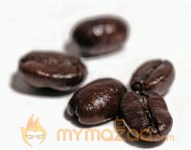It is always intriguing to me when science discovers a food that has a positive effect on one gender and quite the opposite on the other. An example has arisen in a study on Amyotrophic Lateral sclerosis (ALS) orLou Gehrig ’s disease. As a reminder, Lou Gehrig’s disease or (ALS) is a deadly disease that damages key neurons in the brain and spinal cord. It causes progressive paralysis of voluntary muscles and often death within five years of onset of symptoms. Discovered over 100 years ago, neither the cause nor a cure for the disease has been found. Scientists say that several mechanisms play a role in its development, and one isoxidative stress.
One of the environmental factors in onset of ALS is diet, and since oxidative stress is a concern in ALS since it damages cells, antioxidants are an important topic to examine in reference to this disease. Coffee is one in particular has received some attention as a potent dietary antioxidant with significantly more antioxidant capacity than cocoa and green, black or herbal teas. However, coffee contains several components, the largest of which are caffeine, not great for some and chlorogenic acid, a dietary polyphenol that is beneficial to the immune system.
Previous studies have shown positive effects with coffee, caffeine, or chlorogenic acid supplementation in improving oxidative stress and its associated cell death mechanisms and now a new study on the role of dietary intervention focused on coffee. The researchers examined the effect of coffee, caffeine and chlorogenic acid supplementation on markers of oxidative stress, antioxidant enzyme protein content and cell death in male and female mice models of ALS. The researchers found that coffee appears to be beneficial for men, both reducing oxidative stress and cell death, and increasing antioxidants, but for women, caffeine appears to be harmful. The researchers recommended that women with the disorder may want to restrict caffeine consumption, or switch to decaffeinated products which contain the antioxidants, but with little caffeine.










